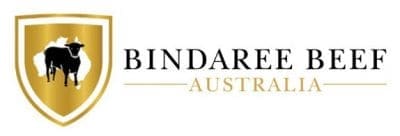IN A stark lesson for customers about the volatility of Australian meat and livestock markets, a Supreme Court judge has ordered a Chinese business to pay NSW processor Bindaree Beef more than $31 million for reneging on beef supply deals struck in 2015.
 Bindaree Beef’s Chinese customer Chinatex’s representative was heavily criticised by Supreme Court judge David Hammerschlag during the hearing for ‘lacking any commercial moral compass’, and the company was ordered to pay Bindaree $31.35 million in compensation, with costs yet to be determined.
Bindaree Beef’s Chinese customer Chinatex’s representative was heavily criticised by Supreme Court judge David Hammerschlag during the hearing for ‘lacking any commercial moral compass’, and the company was ordered to pay Bindaree $31.35 million in compensation, with costs yet to be determined.
The three-year beef supply deal between Bindaree and the Chinese state-owned corporation was struck in 2015, for Bindaree to process about 900 head of cattle per week, for export to China. The agreed price was linked to movements in the Australian cattle market.
The dramatic lift in cattle prices across Australia during the back half of 2015 saw the agreement come under considerable pressure. As an example, the benchmark Eastern Young Cattle Indictor leaped from 416c/kg in late March to 596c/kg in late September 2015, a rise of 180c/kg or 43 percent in six months.
Under the deal struck by Bindaree, Chinatex had to bear any risk for rising cattle prices, which is what happened as the project got started. Bindaree was obviously looking to hedge its bets, in a climate where cattle price rises looked likely.
Chinatex is known to have done a few smaller frozen beef supply deals out of Australia during 2014, when cattle (and meat) prices were much lower, and Australian trade into China was just getting established. Attractive margins on such deals at that time obviously spurred the company into tackling the much bigger project which unfolded with Bindaree.
In a conversation recounted in court documents, Bindaree’s chief executive Andrew McDonald told Chinatex’s representative Zhiuhua Liang he could see that might cause difficulty for Chinatex.
“I know there will be a rough time at first and you will lose some money in the beginning, but over the three-year contract there will be highs and lows – we hope that you will come out of it in front,” Mr McDonald reassured Bindaree’s customer.
Chinatex’s Mr Liang said he feared the buyer for the beef was ‘going to walk.’
“I am aware of Chinatex’s obligations under the contract, but I cannot show losses to head office from the beginning,” he said. “I need to hide the losses – I don’t want Beijing to know. You’ve got to help me – Help me, help you,” he said in correspondence.
Bindaree’s response was that it would continue to purchase and slaughter cattle in line with the contract.
Mr Liang denied during the trial ever conceding he agreed that Bindaree had the right under the contract, but that testimony was dismissed by Judge Hammerschlag.
“He is an intelligent, articulate and thoroughly unscrupulous man, entirely lacking in any commercial moral compass,” the judge said. He said it was clear Chinatex never intended to honour the contract, if cattle price conditions moved adversely.
Bindaree found other customers for some of the cattle it was killing for Chinatex, but for which Chinatex didn’t pay (except for one short period where Chinatex found a Chinese buyer for the beef it had ordered from Bindaree).
What are the chances of Bindaree getting its money as a result of the judgement? Since the dispute took place, Chinatex has been bought-out by Chinese state-owned behemoth, COFCO (China National Cereals, Oils and Foodstuffs Corp), which does big business out of Australia, principally in grain, sugar and other commodities. Observers say it would not be a good look for COFCO to walk away from such a court order, covering a company which it now owns.
Chinatex had no connection with the Shandong Delisi group, which Bindaree negotiated with in 2016, in a bid to establish a $140m investment deal which ultimately fell over. Nor was there any connection with a 2015 proposed joint venture deal involving Bindaree and Delisi to establish a meat processing facility at Quingdao.
In September, Bindaree signed a joint venture with the Hong Kong-based Hui family and investment firm Archstone Capital in a $140 million capital raising deal.
Asked if Chinatex’s reneging on its deal with Bindaree was ‘not a good look’ for Australia’s beef trade with China more generally, in terms of customer business principles, an exporter contact said that it would be unfair to make such broad assumptions.
“Plenty of Australian entities are now doing good business into China on a weekly basis, and have had only positive experiences with the reliability and integrity of their customers,” he said.
